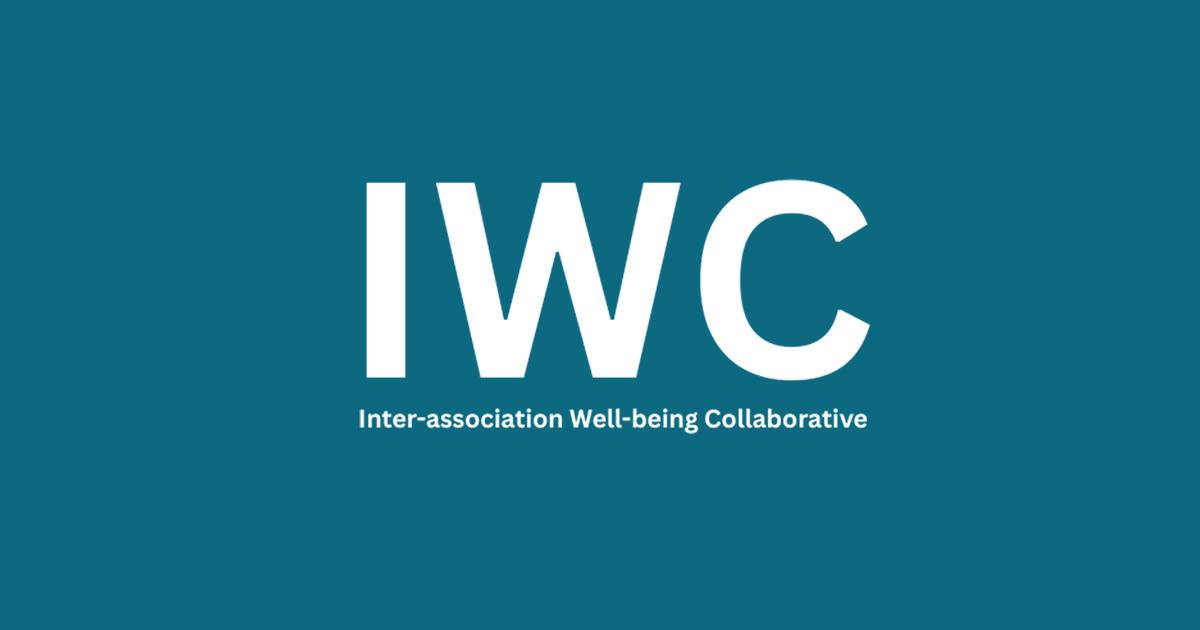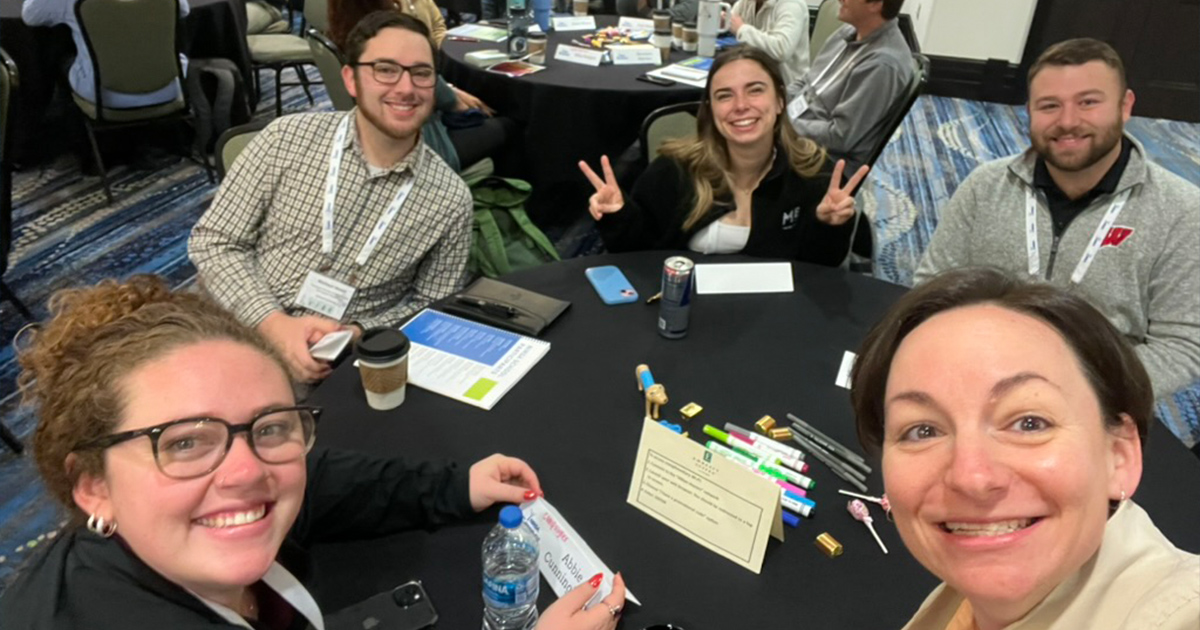Widening cultural divisions are playing out through sociopolitical legislation and policies at regional, state, and local levels. NIRSA’s leadership is actively engaged in how NIRSA can continue to demonstrate our values through our actions. With this reality, the NIRSA Board recently reconsidered NIRSA’s site selection guidelines.
The NIRSA Board of Directors stands unwavering in its commitment to equity, diversity, and inclusion as a part of our core identity as leaders in collegiate recreation. The Board deeply values accessibility for all of our members to in-person learning experiences. As an organization, NIRSA faces unique challenges in finding spaces that fit our event needs and are accessible to members even when politics and policies are stable and predictable. Navigating these often contradictory realities while booking sites years in advance is complex.
NIRSA has a duty to its members in all areas of North America. All deserve the opportunity to engage in the learning, education, networking, and fellowship that NIRSA events provide. Government laws and venue policies can positively or negatively impact the health, safety, and wellbeing of attendees. Additionally, the financial accessibility of events is significantly impacted by the distance a person needs to travel to attend.
The overarching goal remains to offer positive and accessible professional development experiences free from discrimination. NIRSA is committed to engaging with cities and venues that promote non-discrimination and support all individuals across the spectrum of identities.
The site selection process
When selecting a location for an event, NIRSA takes into consideration the health, safety, wellbeing, and accessibility of all attendees, exhibitors, and staff. While there is no set rotation around North America (or within a region) for learning events, NIRSA recognizes that geographic proximity directly impacts the cost of attending an event.
Sites are selected for their proximity to higher geographic concentrations of NIRSA members. Year to year, events are moved around North America to give attendees opportunities for close to or closer-to-home professional development opportunities. The site’s proximity to major national airports or other modes of transportation is taken into consideration.
Additionally, sites must meet all the capacity and functionality requirements for meeting rooms, exhibit hall, and other event functions at a price and on a schedule that is affordable for attendees. The conference must demonstrate compliance with the American with Disabilities Act (ADA); accommodate for special needs in guest rooms and facilities; provide ease of access to, between, and within meeting spaces; and make any and all efforts to accommodate the diversity of attendees, exhibitors, and staff. This includes providing gender neutral restrooms, lactation rooms, and prayer and meditation space for attendees.
The cost of hosting an event varies widely depending on location; smaller and more remote areas are less expensive than large, easily accessible cities like New York or Los Angeles. Preferred dates overall (week, month) and day pattern (weekdays or weekend days) for the event are also driving factor in site selection and impact price; NIRSA avoids scheduling events during holidays and weekends.
NIRSA celebrates equity, diversity, and inclusion and evaluates venues and cities based on their commitment to similar values. NIRSA will continue to make diversity, equity, inclusion, justice, and accessibility an integral priority in NIRSA learning event program planning regardless of location. In circumstances when NIRSA holds an event in a city or state with controversial legislation or policies not aligned with NIRSA values, the Association will partner with one or more member institutions, NIIRSA affiliates, or member groups to determine value-aligned actions.
Changing policies and legislation
When the Association becomes aware of changes to laws, policies, or practices in a contracted venue, city, or state, it strives to ascertain the facts of the current situation and projected plans for legislation, policies, practices etc. by reaching out to third-party experts and members in the impacted areas. NIRSA communicates concerns to representatives from the venue and city and engages them in steps to mitigate negative impacts before and during the event. The Association also communicates with contracted sites that these types of laws, practices, and policies have an impact on our willingness to choose this city for a future event.
If, following a fully executed contract, the city or venue changes its non-discrimination policies, the NIRSA Board of Directors will review the cancellation clauses and financial implications for the Association. If the contractual financial liability is of material significance to the Association, the NIRSA Board of Directors will honor all contractual obligations at its discretion. Regardless of the decision, the Association will be an advocate for non-discrimination at the contracted location and leverage its membership to educate for change.
The NIRSA Annual Conference
Several considerations make the NIRSA Annual Conference a unique event to find host sites for—especially in comparison to peer associations in higher education and the physical activity industry. The Annual Conference is a four-day event that includes over 80 educational sessions, 4-6 general sessions, and a large expo. The NIRSA Annual Conference is a space-heavy event when compared to its attendee size and overall spend. The Association schedules the Annual Conference during the most popular convention months of the year: March and April. NIRSA seeks locations that can house the conference in one convention center within safe walking distance from hotels and local amenities.
These factors create significant challenges when sourcing cities at reasonable rates for lodging, facility rental, and catering. Contracts include several significant and layered obligations which include penalties and fees for non-compliance.
Why not move an event?
This is the most frequently asked question when a controversial policy or travel ban is put in place. NIRSA recognizes that members have legitimate and serious concerns regarding the laws or policies in certain locations. NIRSA may share these concerns—especially when related to laws that are discriminatory in nature and do not align with our values.
While pulling an event—particularly a large, unique event like the Annual Conference—from one city and rescheduling it for another would be a significant undertaking, it is also always an option and never goes unconsidered. However, in addition to many of the factors already cited, NIRSA also must consider the scope of impact of our event and who is most impacted. Moving an event has many repercussions, some of them unintended and potentially harmful.
Here are some points to consider:
- For many members learning events are only financially accessible if they occur within driving distance of their home, so NIRSA needs to rotate meeting locations throughout North America
- Hotel and conference center employees who staff the event venues are often from marginalized or non-majority populations; if the event does not take place, they have no work
- Pulling out of a city or state removes NIRSA’s opportunity to show support for populations targeted by policies, and groups allied in protest against such policies
- Policymakers are not impacted by event cancellations; they respond to their constituent voters
- There are typically significant financial implications for cancelling and moving a contracted event
- Pulling out of a city or state removes NIRSA’s opportunity to provide education and increase awareness about the impact of such policies for people and groups who do not have access to this perspective
A commitment to inclusive events
The site selection process for NIRSA events is complicated and requires the consideration of many financial and sociopolitical factors. NIRSA is committed to engaging with sites that promote non-discrimination. The Association will continue to stand by its core value of equity, diversity, and inclusion; NIRSA prioritizes the ability to offer professional development experiences that are welcoming of all.
For access to the full policy for site selection, please contact NIRSA. If you have additional questions, please reach out to Pam Watts or Wendy Windsor.
Dr. Wendy Windsor is the currently the Director of Campus Recreation and the President of the NIRSA Board of Directors; you can email her at windsor@tulane.edu.
Pam Watts is Executive Director of NIRSA: Leaders in Collegiate Recreation, headquartered in Corvallis, Oregon. Pam is a Certified Association Executive and she can be reached at Pam.Watts@nirsa.org









